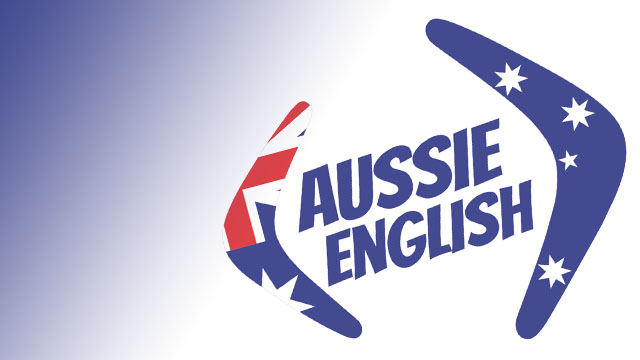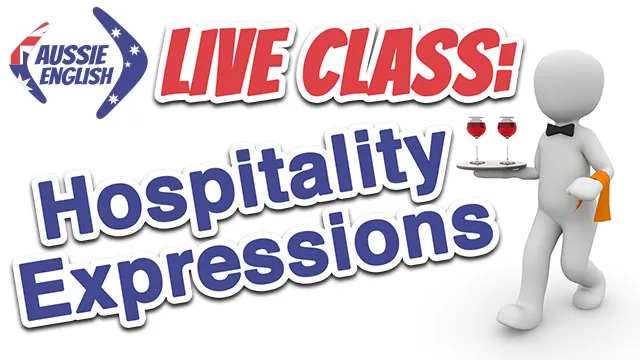
Ep041: Expression – To Reckon
In today’s episode I explain how Australians often use the verb “to reckon” instead of “to think”, as well as some expressions using it. The transcript of the episode is written below. So click play and read along as I speak to you guys in this latest episode!
Download the episode PDF here.
Ep041: Expression – To Reckon
G’day guys and welcome to this mini episode of Aussie English.
Today I’m going to talk a little bit about the verb “to reckon”, “to reckon”, “to reckon”, and “to reckon” is spelt, well “T-O” and then “R-E-C-K-O-N” so the word “reckon” “R-E-C-K-O-N”. What do you reckon?
So, this word “to reckon” effectively just means “to think”, however, it can’t be used in every way that we would use the verb “to think”, and I’ll go through that at the end, but at first I’ll show you how you can use “reckon”.
So, if you were to say “what do you think about something?”, “what do you think?” Australians are just going to say
“What do you reckon?”,
“What do you reckon?” or
“Whadja1 reckon?”,
“Whadja reckon?”,
So it’s often used when you ask someone “What do you think about something?”. You would just say “what do you reckon?”. So, I’ll give you some sentences with the verb “to think” in it and then the sentence that we would use with the word “reckon” after it.
So the first one is:
“What do you think?” or
“Whadja think?” and this becomes
“What do you reckon?”,
“What do you reckon?”, which when said quickly will be
“Whadja reckon?”,
“Whadja reckon?”.
Then we have:
“I think it’s time to go to the beach”,
“I think it’s time to go to the beach”, and if we use reckon in this sentence it becomes
“I reckon it’s time to go to the beach”,
“I reckon it’s time to go to the beach”,
“I reckon it’s time to go to the beach guys!”.
Then we have:
“Do you think it’ll rain today?”,
“Do you think it’ll rain today?”, and if we use “reckon” instead it is
“Do you reckon it’ll rain today?”,
“What do you reckon mate? Do you reckon it’ll rain today?”,
“Do you reckon it’ll rain today?”,
“What do you reckon?”.
And then the last one we’ll go over quickly is:
“I don’t think I’ll go to work today”,
“I don’t think I’ll go to work today”, and so if we use “reckon” in that sentence it becomes
“I don’t reckon I’ll go to work today”,
“I don’t reckon I’ll go to work today”.
“I don’t reckon I’ll go to work today”.
“Nah I don’t reckon I’ll go”.
“I don’t reckon I’ll go”.
So, you can use this verb like I just mentioned but unlike “to think” when you say “you’re thinking about something” you would never say “I’m reckoning about something”. You would never say “I’m reckoning about going” it’s kind of always in that present tense “reckon”, “I reckon”, there’s no “oh I’m reckoning”, nah, it makes sense grammatically but you would never say it like that in colloquial Australian English.
So you can also say, “reckon” or “I reckon” in agreement with someone. So for example if someone told me:
“Man it’s so hot today” in response to that if I agree with the person I could say
“Oh I reckon!”,
“Oh I reckon!” or you can just completely get rid of the “I” in that sentence and just say
“Oh, reckon!”,
“Oh, reckon!”.
Another example could be someone has said “oh man that guy is such a moron!” and if I agree with them that that guy is a total moron, he’s an idiot, I could say:
“Oh yeah, I reckon”,
“Yeah, I reckon.” or again I could just get rid of that “I” and I could say
“Yeah, reckon!”,
“Yeah, reckon”.
So when would you not say, “reckon” and instead use “think”? For one, if you’re thinking about something you would never say “I’m reckoning about something”. So we don’t really use “reckon” with the “-ing” on the end. You would never say “yeah I’m reckoning about doing this later”. No, never. You would say, “I’m thinking about doing this.” Reckon is pretty much always just said as “reckon”. You would never put it in the “-ing” form of the verb, I don’t think. At least not in colloquial Aussie English. You also wouldn’t say it in the sense of like, “let me think”, you would never say, “oh let me reckon on it” or “Let me reckon”, “let me reckon”. Nah you wouldn’t say that. It’s always “yeah let me think”, “let me think for a sec”.
Another one would be if you say “if I think about it” or “If I think about something” yeah you would never say “I’m reckoning about it” or “let me reckon about it”. There’s no about after “reckon” it’s always just “reckon”. So, yeah, and it’s never… I don’t think you would ever use “reckon” with the thing you are thinking about after it. So you would never use “it” or “I’m thinking about the beach” you would never say “I’m reckoning about the beach” or “I reckon about the beach” or “I reckon…” Yeah it’s just… “reckon” stands on its own2. It’s just “I reckon”, “I reckon”. So I hope that’s helped guys. “Reckon” is something you will really really hear quite a bit in Australia. I don’t know if it’s that common in England and I’m pretty sure that the Americans don’t really use that at all. Yeah, I’m pretty sure I remember being asked a few times by other English native speakers from America “what do you mean? What is reckon?”. So that’s it for today guys. I hope you liked the episode and I’ll talk to you soon. Have a good one.
Notes:
1Whadja – What do you à what do ya à Whadja. Note: Whadja is just spelt like this here to explain how you would pronounce the phrase when speaking. When written it would always be “what do you”.
2To stand on its own (idiomatic expression) – To be independent of others. In this example I mean that the phrase “I reckon” stands on its own and doesn’t require anything else to be added to it (i.e. about, on, it, etc.).
Here's what you get when you sign up!
- Read while you listen using the Premium Podcast player.
- Understand every word in every episode.
- Download all PDF transcripts and MP3s for 600+ episodes.
- Get access to bonus member-only episodes.












Responses